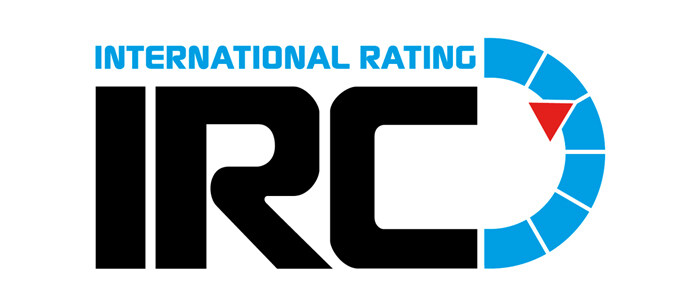The solar energy industry continues to expand as more individuals and businesses seek sustainable and cost-effective solutions for power generation. Amid this growth, ensuring the quality, safety, and compliance of solar panel systems has become crucial. One key aspect in this context is the IRC certificate. But what exactly is an IRC certificate for solar panels, and why does it matter?

What Is an IRC Certificate?
IRC stands for Import Registration Certificate, which is a document required in many countries for importing products — including solar panels and related components. However, in the context of solar panels, IRC certificate may also be used to refer to "International Renewable Certificate" or "Installation Readiness Certificate", depending on the local regulatory context.
For clarity, this article focuses on the IRC as Installation Readiness Certificate, which is a commonly used term in countries with regulated solar installation practices, particularly for government-subsidized or large-scale solar projects.
Purpose of the IRC Certificate in the Solar Industry
An IRC certificate serves multiple purposes:
1. Regulatory Compliance: It verifies that the solar system (including the photovoltaic panels, inverters, and installation components) complies with national or local standards before being connected to the grid.
2. Inspection Approval: The certificate confirms that a solar installation has been inspected by a certified authority and is ready for operation.
3. Subsidy Eligibility: In many regions, government incentives and rebates for solar installations require proof of an IRC certificate.
4. Safety Assurance: It ensures that the installed system meets safety standards, reducing risks of electrical faults or fire hazards.
5. Quality Control: The IRC certification process helps ensure that only qualified installers and certified equipment are used.
When Is an IRC Certificate Required?
Not all solar panel installations need an IRC certificate. Its necessity depends on:
-
The type of project: Large-scale, industrial, or grid-connected residential projects usually require it.
-
Location: In countries like India, Kenya, and parts of the Middle East, IRC or its local equivalent is mandatory before commissioning.
-
Incentive programs: If a homeowner or business applies for subsidies, grants, or net-metering, the IRC certificate is typically part of the required documentation.
The Process of Obtaining an IRC Certificate
The process to obtain an IRC certificate generally follows these steps:
1. System Design and Approval
- A licensed solar engineer or EPC (Engineering, Procurement, Construction) contractor submits the system design to a regulatory body for approval.
- This includes technical drawings, system specifications, safety measures, and component certifications (like IEC or UL standards).
2. Installation
- The solar system must be installed by certified professionals according to the approved plan.
- Proper grounding, cable management, spacing, and weatherproofing must be ensured.
3. Site Inspection
- A certified government inspector or third-party verifier visits the site to inspect the system.
- They verify physical installation quality, compliance with approved design, and grid compatibility.
4. Testing
- The system undergoes functional tests, including:
- Inverter operation
- Output performance
- Load handling
- Emergency shut-off functions
5. Issuance of IRC Certificate
- If the system passes inspection and testing, the authority issues the IRC certificate.
- This document may include:
- Installer’s name and license number
- Installation site address
- System capacity (e.g., 5kW, 20kW)
- Date of inspection and approval
- Certificate validity period (if applicable)

Key Benefits of Having an IRC Certificate
- Legal Compliance: An IRC certificate acts as proof that your solar installation meets all local or national legal requirements. This is essential for avoiding penalties or disconnection from the power grid.
- Access to Incentives: In many countries, government subsidies or tax credits for solar installations are only released once the IRC certificate is submitted. It serves as a green light for fund disbursement.
- Improved Safety: IRC-certified systems are verified to follow safety standards, helping prevent electrical accidents, system failures, or fires.
- Better Resale and Insurance Terms: Properties with certified solar installations may have higher resale value and qualify for better insurance policies since the system is verified for compliance and safety.
Difference Between IRC and Other Certifications
|
Certificate
|
Full Form
|
Purpose
|
Applicable To
|
|
IRC
|
Installation Readiness Certificate
|
Confirms compliance and readiness of installed solar system
|
Post-installation
|
|
IEC
|
International Electrotechnical Commission
|
Product performance and safety certification
|
Solar panels, inverters
|
|
UL
|
Underwriters Laboratories
|
Safety certification for electrical equipment
|
Modules, batteries
|
|
ISO
|
International Organization for Standardization
|
Management and process quality
|
Manufacturing processes
|
Common Challenges in Getting IRC Certification
-
Incomplete Documentation: Installers often fail to submit all required papers, delaying the process.
-
Installation Errors: If wiring or layout doesn't match approved plans, certification is denied.
-
Low-Quality Equipment: Use of uncertified panels or inverters can result in rejection.
-
Delays in Inspection: Scheduling site visits with government agencies may take time, especially during peak installation seasons.
Best Practices to Ensure Smooth IRC Certification
-
Choose Certified Installers: Work only with experienced and licensed solar contractors.
-
Use Certified Equipment: Ensure all components have proper international certifications (e.g., IEC 61215, IEC 61730).
-
Prepare Documentation Early: Keep installation records, technical drawings, purchase invoices, and warranty papers in order.
-
Pre-Inspection Check: Conduct an internal inspection before the official one to fix any issues in advance.
Is an IRC Certificate Recognized Internationally?
IRC certification is typically issued by local regulatory bodies and is not an internationally recognized document like IEC or UL certification. However, it plays a vital role in domestic policy compliance and is essential for local grid interconnection and subsidy claims.
Conclusion
The IRC certificate is a critical component in the journey from solar panel installation to operational readiness. It ensures compliance with safety standards, guarantees installation quality, and opens the door to financial incentives. Whether you are a homeowner installing a rooftop solar system or a developer managing a commercial solar farm, understanding and securing your IRC certificate can save you time, money, and legal complications.
As the world transitions toward clean energy, such regulatory mechanisms help maintain industry standards and protect consumers — making the IRC certificate a foundational element of responsible solar adoption.







